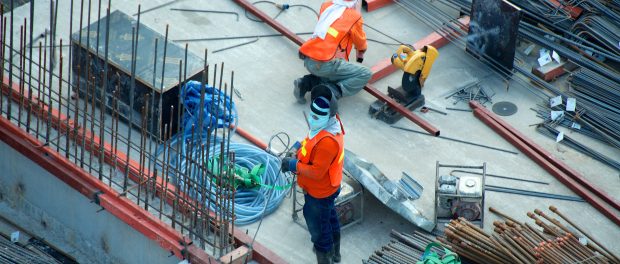Major Challenges Faced in the Construction Industry

The UK’s construction industry is a leading provider of jobs, and one of the most important industries for the economy. It is responsible for the expansion of urban infrastructure, and the recipient of key investment on a number of fronts.
A developing construction industry indicates a growing nation – but there are some key generational challenges that threaten this growth and could be disastrous for a lynchpin of the economy. What are these challenges?
Labour Shortages
One of the key challenges faced by the construction industry at the present moment relates to labour. Despite encouraging figures from the construction industry as a whole, companies and contractors have found it significantly harder to source skilled tradespeople than before the pandemic.
The labour shortage has been partially attributed to the after-effects of the UK’s departure from the EU. However, there are also concerns that fewer young people are expressing an interest in vocational trade, as the working population of tradespeople seems to be aging upwards.
Health and Safety
Health and safety has been an evergreen concern for construction sites – but despite long-running industry concerns with creating safe working environments, construction-related injuries are the most common of all workplace injuries in the UK.
The key drivers for injury are believed to be poor training, and non-compliance when it comes to workplace health and safety policy. As such, health and safety remains a pressing matter in construction.
Productivity
Productivity refers not to the idleness of existing employees, but rather to a wider issue that impacts the effectiveness of construction teams – with knock-on effects on schedules and project quality. Productivity can be affected by a wide variety of factors, from delays and breakdowns in the supply chain to equipment failure and beyond.
Today, supply chains are in turmoil globally; conflict in Eastern Europe and the international sanctions that resulted have had a crippling effect on certain areas, shutting down supply of fuels and drastically increasing the cost of raw materials to boot. Altogether, these have had a slowing effect on projects underway – itself with a dire cost consequence.
Sustainability
The construction industry also faces something of an existential threat, in the form of the global climate crisis. The effects of man-made pollution have been laid bare by the erratic weather patterns of the past few years, making all the clearer the case for a net-zero approach to pollution.
But construction is a leading polluter in the UK, whether in the use of industrial machinery or the unsustainable sourcing of raw materials with a high carbon cost. As the government imposes new expectations on industry in the UK, the challenge facing construction is to seek new, sustainable approaches without losing yet more staff to inexperience.
Site Management, and Addressing These Challenges
The above challenges are directly impacting on construction teams and projects this very moment, and often fall to specific managerial figures to solve on an individual basis. The construction site manager job role was created to ensure a cohesive approach to building, and the timely completion of specific jobs; today, the role is much more expansive, encompassing communication, health and safety and longer-term management challenges.
Talented site managers have adapted to the new challenges in the contemporary construction landscape, upskilling with training in new construction technology and software to better administrate job sites and projects in progress. Labour issues are a systemic problem that site managers cannot solve, but dedicated approaches to diverse hires and robust work-site processes have enabled them to control the other variables more directly.

